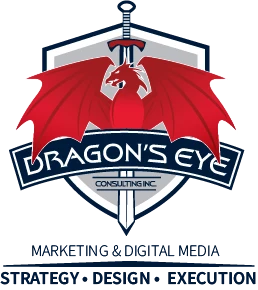As a business owner, you’ve likely heard the term SEO (Search Engine Optimization) thrown around. But understanding the key components of SEO—on-page and off-page—can be the difference between a website that simply exists and one that generates real traffic, leads, and revenue.
So, what’s the difference between on-page SEO and off-page SEO—and why should you care? Let’s break it down.
On-page SEO: The Foundation of Your Website
On-page SEO refers to all the optimization efforts you make within your website. It’s about making sure your content and structure are aligned with what search engines (and customers) are looking for.
This includes:
- High-quality content: Your website should offer helpful, original, and relevant information that answers your audience’s questions.
- Keyword optimization: Using the right keywords in the right places—titles, headers, meta descriptions, and content—helps Google understand what your page is about.
- Site structure & navigation: A well-organized, easy-to-navigate site improves user experience and keeps visitors on your pages longer.
- Mobile-friendliness and page speed: These technical factors directly impact how search engines rank your site.
- Image optimization: Adding alt text and compressing images improves both accessibility and load times.
Think of on-page SEO as the foundation of your digital storefront. It ensures your site is easy to find, easy to understand, and easy to use. It also enhances your content in digital marketing, which is a core part of any strategy that aims to inform, engage, and convert your audience.
Off-page SEO: Building Your Online Authority
Off-page SEO, on the other hand, focuses on building your site’s reputation and authority through activities that happen outside your website.
Key elements of off-page SEO include:
- Backlinks: These are links from other websites pointing to yours. When high-authority sites link to your content, search engines view your site as more trustworthy.
- Social media: While not a direct ranking factor, shares and engagement can increase visibility and drive traffic to your site.
- Online reviews and citations: For local businesses, positive reviews on platforms like Google, Yelp, and industry directories can boost their local SEO.
- Brand mentions: When your brand is talked about online, even without a link, it contributes to your digital footprint.
For example, if you’re a business in Toronto, earning mentions and backlinks from local business directories, industry blogs, or partners in the Toronto business scene can significantly enhance your off-page SEO and boost your visibility to the right audience.
Why It Matters
On-page and off-page SEO work hand in hand. You can have a beautifully optimized website (on-page), but without links and mentions (off-page), it may never rank. Conversely, if you earn backlinks to a poorly optimized site, you’re leaving opportunities on the table.
At our agency, we often say: On-page SEO gets you in the game. Off-page SEO helps you win it.
By investing in both strategies—alongside powerful content in digital marketing and targeted outreach—you’ll improve your rankings and build long-term credibility and customer trust.
Contact Dragon’s Eye Consulting- Your Digital Marketing Agency for Custom SEO Strategies in Toronto and the GTA.
Whether you run an e-commerce store or offer sales consulting in Toronto, our team is here to help you get found, get leads, and grow your business. Contact Dragon’s Eye Consulting for a free consultation today!
Dynamic Digital Marketing Strategies For Transformative Business Leaders.
